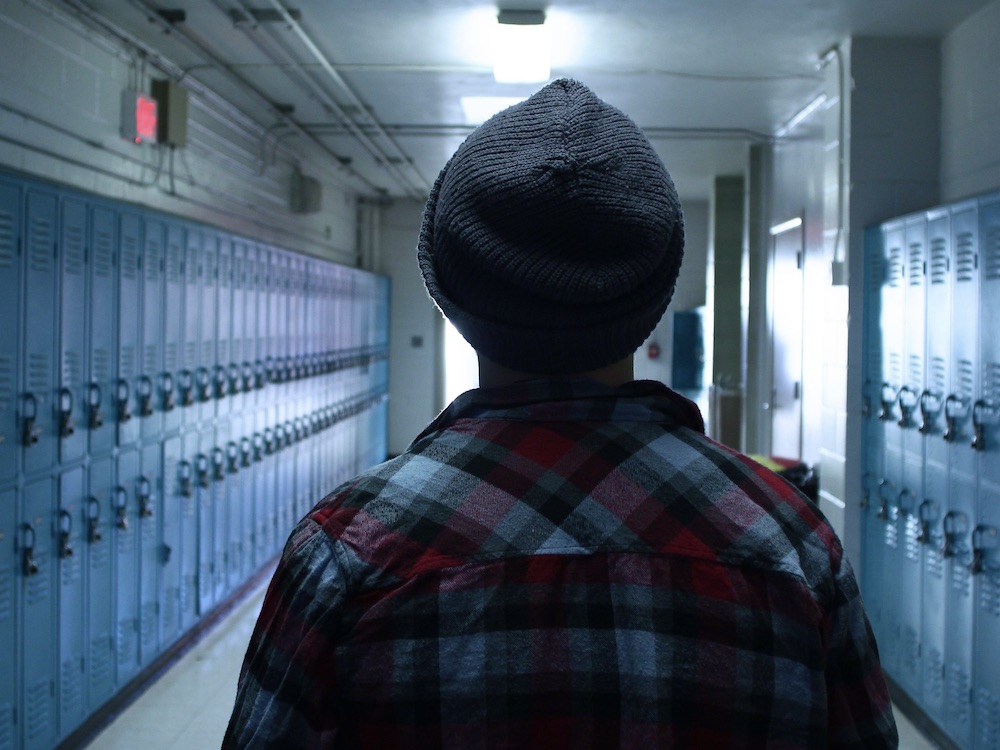On Monday night, only three weeks into its term, the newly elected Vancouver School Board caucus voted five to four to reinstate the School Liaison Officer program. This was a program that was terminated last term with an eight to one vote after extensive research into the program was conducted and published in an extremely insightful report.
During four nights of public engagement last week, we heard some positive personal anecdotes regarding specific school liaison officers. To the kids who benefited from the program, individual officers ranged from friendly to “life-changing.” For the most part, SLOs wanted to be there for the right reasons — they wanted to build relationships, be a trusted resource. They were there because they loved kids. It is also true that potentially dangerous incidents are a sad reality. Gangs, human trafficking and weapons in schools are threats that some students face, and police officers are one way of dealing with them.
However, two other quotes from speakers continue to stand out in my mind: Stephanie Kallstrom explained that "Black and Indigenous people have a completely different experience with police than any other population." And Nicole Bruce pointed out that queer folks share similar concerns even though they are not as widely researched.
In 2021 this lived experience was borne out as the VSB asked students about the SLOs through surveys and extensive interviews. Dubbed the Argyle Report, these surveys and interviews made it clear that embedding uniformed and armed police officers in schools disproportionately and negatively impacted the learning and well-being of Black and Indigenous students. To me, the message to the student community is that equity-seeking groups are not being considered, and the reinstitution of the SLO program is a step backward in reconciliation.
There is ample research validating these experiences and pointing to systemic discrimination in policing. According to the Department of Justice of Canada, “Schools [are] a key site where Black youth have their first contact with the CJS [criminal justice system],” after which they experience “overwhelmingly negative and discriminatory experiences when navigating through the CJS.”
Likewise for queer folks: almost six times as many 2SLGBTQIA+ people were stopped by the police in a public space, according to a report on policing queer people by the UCLA Williams Institute School of Law. The same report found that nearly seven times as many LGBTQ+ people were stopped by the police for reasons other than involving a vehicle (driving or being a passenger).
A recent history of problematic police behaviour
These problems are clearly present in the Vancouver Police Department. VPD officers handcuffed Heiltsuk grandfather Maxwell Johnson and his granddaughter at a bank for wanting to open an account in 2019. Later, the same officers snubbed the invitation to attend an apology ceremony despite being ordered to do so.
In 2021, VPD officers mistakenly tried to arrest a retired Black judge while he was taking a stroll in Stanley Park. During the delegation meeting on Nov. 22, we heard a parent tearfully recount how the VPD handcuffed her child, who was suffering from suicidal ideation and panic attacks, inside a VSB school.
In other extremely concerning news, on-duty and in-uniform VPD officers filmed themselves mocking internal sexual harassment probes and sending the resulting videos to colleagues and supervisors. Additionally, a VPD officer who had “sexual activities” with a high school student in 2018 received only a small demotion this month — all in a post-MeToo world.
A troubling lack of accountability
The SLO program previously run by the VPD had no oversight from the VSB. This was unnegotiable to the VPD and led to the dissolution of the program in 2021.
The VPD was simply not interested in collaborating with VSB staff to ensure all students felt safe, such as by modifying the 2006 memorandum of understanding to mandate plainclothes, unarmed officers in schools.
The vote Monday night wasn’t just about the individual SLOs themselves. It wasn’t about developing a “good” program or a “good” MOU (which is not legally binding, by the way). It was about the unaccountable culture of policing.
Earlier this year, the all-party BC Special Committee on Reforming the Police Act, “which heard clear evidence of systemic racism and discrimination in policing,” released their findings and 11 recommendations.
The VPD must implement these recommendations before we can trust them with the well-being of our students. The MOU will not have time for proper review by September 2023, jeopardizing the appropriate scrutiny.
Without commitment from the VPD to address our demonstrably valid concerns, I don’t trust that we can develop a positive relationship that looks out for the best interests of all our students. Writing the VPD a letter asking them to “please consider our thoughtful recommendations” isn’t going to cut it.
The VSB has taken its own steps with a creation of an Anti-Racism and Non-Discrimination Strategy as well as a Safe and Caring Schools department and it is my hope that the VPD can use this as an opportunity to start making the institutional changes that it so evidently needs. ![]()
Read more: Rights + Justice, Education, Municipal Politics

















Tyee Commenting Guidelines
Comments that violate guidelines risk being deleted, and violations may result in a temporary or permanent user ban. Maintain the spirit of good conversation to stay in the discussion.
*Please note The Tyee is not a forum for spreading misinformation about COVID-19, denying its existence or minimizing its risk to public health.
Do:
Do not: